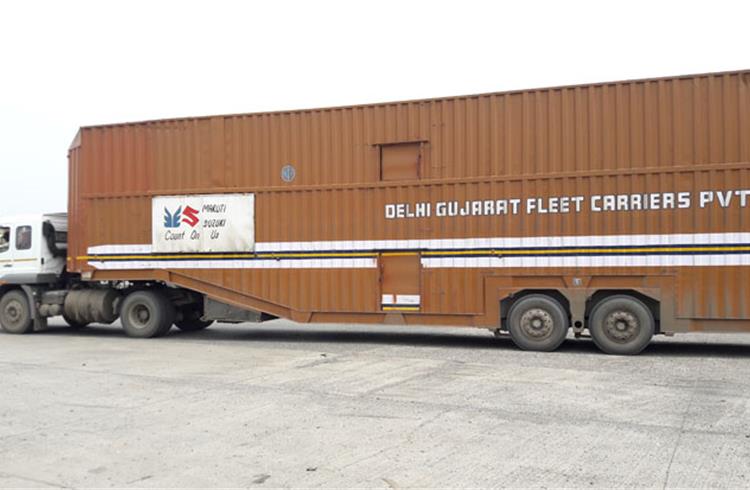Sales slowdown impacts auto dealerships’ credit profile: ICRA
ICRA Ratings has a ‘negative’ outlook on the domestic auto dealership sector, forecasting decline in credit profile amid slowing sales and high working capital debt.
As the prolonged slowdown in the domestic automobile industry continues to impact showroom and dealership owners, the situation has impacted their credit profiles. This is likely to increase their borrowing costs, thereby further impacting their bottom lines.
ICRA Ratings has a marked a ‘negative’ outlook to the domestic auto dealership sector, forecasting decline in credit profile amid slowing sales and high working capital debt.
According to a recent ICRA report, the ongoing downturn has severely impacted the profitability of automobile dealerships which is expected to be at a five-year low. As the sector endures one of the worst impacts in the current fiscal, the credit profile of industry participants has weakened, as reflected in some players in its rated portfolio being downgraded or their outlook revised to negative.
Over the past several quarters, automotive retail demand has come under severe pressure due to confluence of multiple factors like liquidity crunch and tighter financing environment, weak rural income and overall slowdown in economic activity. Further, prices and cost of ownership have also increased due to regulatory changes (safety, emission, insurance) and fuel prices – all of these combined has negatively impact consumer sentiments.
Ashish Modani, vice-president, ICRA said, “Owing to deep discount and negative operating leverage, profitability of automobile dealerships is expected to be at a five-year low in the current fiscal. The muted industry scenario has stressed the credit profile of dealers, especially those of new entrants, and has forced some dealerships to shut down as well. Also, while on one hand, OEMs have benefitted from dealership expansion, sales per dealership have not witnessed commensurate increase over the last few years.”
Historically, automobile dealerships have been vulnerable to slowdown shocks due to thin profitability and leveraged capital structure. Moreover, inventory push by OEMs in expectation of festive season volume pick-up in 2018 further compounded woes of dealerships during Q4 FY2019, though it has been partially addressed in the current fiscal following production cut and inventory rationalization measures taken by OEMs.
The NBFC crisis due to liquidity crunch too has adversely impacted availability of channel financing over the last one year due to systemic risk aversion. The availability of finance with dealerships continues to remain a major concern, which has impacted their inventory holding capacity, also reflected in weak wholesale dispatches by OEMs.
According to ICRA, the credit profile of dealerships of OEMs with strong or increasing market share like Maruti Suzuki India (MSIL), Hyundai Motors India (HMIL), Honda Motorcycle & Scooter India (HMSI) have witnessed relatively stable financial profile as compared to that of other OEMs with declining market share. Interestingly, amongst various segments, dealers of two-wheelers and PVs have relatively better credit profile and financial performance as compared to dealers having higher exposure to medium and heavy commercial vehicles (M&HCVs) or construction equipment (CE).
Commenting on the demand scenario, the report adds that while retail demand has weakened due to weak consumer sentiments, wholesale despatches have trailed retail volume since the start of current fiscal, as OEMs focused on rationalising dealership inventories. Hence, in the near term, the working capital requirement of dealerships should reduce due to lower inventory holdings. Nevertheless, due to negative operating leverage, profitability and credit profile will remain under pressure over next 3-4 quarters, cautions ICRA.
“Being a highly fragmented segment, no single dealer constitutes more than 2% of an OEM’s domestic sales. Given this industry nature, the pressure on profitability is expected to continue to remain high owing to stiff competition. However, ICRA believes that dealerships which derive relatively better revenue from spares and service income will outperform their peers over medium to long term,” added Modani.
RELATED ARTICLES
Bosch hydrogen engine tech-powered truck to be on Indian roads this year
The global supplier of technology and services is betting big on both electromobility and hydrogen. While announcing the...
IIT Bombay inaugurates Arun Firodia Research Floor
IIT Bombay, one of India’s top technical and research institutions, honours Kinetic Group chairman Dr Arun Firodia, one ...
Maruti Suzuki expands capacity at Manesar plant by additional 100,000 units
New assembly line at Plant A expands total manufacturing capacity at the Manesar plants to 900,000 units per annum. Alon...





 19 Nov 2019
19 Nov 2019
 10305 Views
10305 Views





 Autocar Pro News Desk
Autocar Pro News Desk




